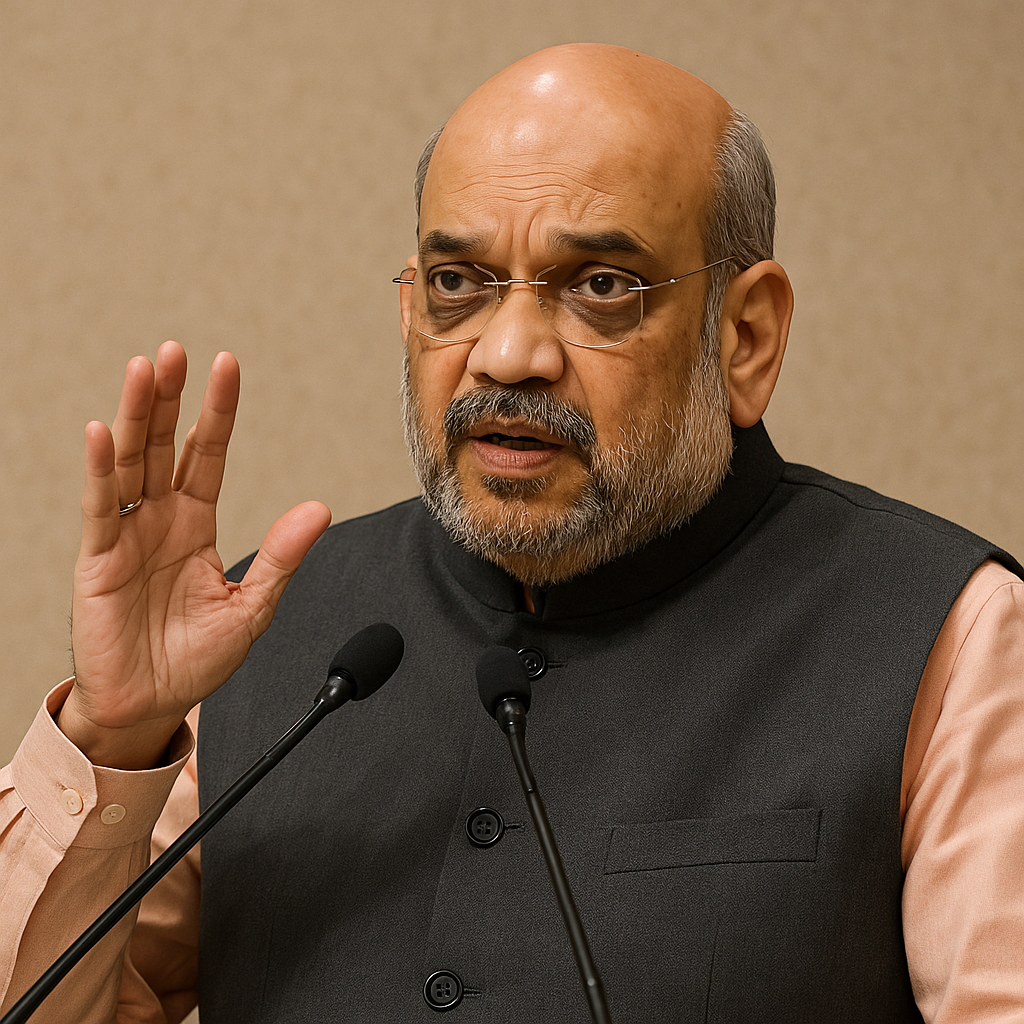India Unveils e-Zero FIR System to Revolutionize Cybercrime Response
Shri Amit Shah, in a public statement on social media platform ‘X’, emphasized that the e-Zero FIR initiative will help nab cybercriminals with unprecedented speed and efficiency.

- Country:
- India
In a groundbreaking move aimed at transforming the way cyber financial crimes are handled, the Union Ministry of Home Affairs (MHA), under the leadership of Union Home Minister and Minister of Cooperation Shri Amit Shah, has launched the e-Zero FIR system as a pilot initiative in Delhi. This new mechanism, developed by the Indian Cybercrime Coordination Centre (I4C), is poised to drastically reduce response time in cybercrime cases and bolster India's cybersecurity infrastructure.
A New Era of Speedy Justice in Cybercrime Cases
Shri Amit Shah, in a public statement on social media platform ‘X’, emphasized that the e-Zero FIR initiative will help nab cybercriminals with unprecedented speed and efficiency. Initially, the system will automatically generate FIRs for cyber financial crimes involving losses exceeding ₹10 lakh, filed via the National Cybercrime Reporting Portal (NCRP) or the Cyber Helpline 1930. These complaints will be seamlessly converted into Zero FIRs—an FIR not bound by territorial jurisdiction—and immediately assigned to the e-Crime Police Station in Delhi for quick action.
The implementation of this tech-driven system is a crucial step in fulfilling Prime Minister Narendra Modi’s vision of a “Cyber Secure Bharat”, ensuring that victims of online fraud receive prompt justice and recovery of their losses.
Integration Across Multiple Agencies
The success of the e-Zero FIR system hinges on robust inter-agency coordination. The new model brings together:
-
The Indian Cybercrime Coordination Centre (I4C),
-
Delhi Police’s e-FIR system, and
-
The Crime and Criminal Tracking Network & Systems (CCTNS) maintained by the National Crime Record Bureau (NCRB).
This powerful integration ensures that once a complaint surpassing the monetary threshold is reported, it is automatically elevated into a Zero FIR and routed to the appropriate territorial Cybercrime Police Station. Complainants are then required to visit the respective station within three days to convert the Zero FIR into a regular FIR, setting the legal process in motion.
A Victim-Centric Approach to Law Enforcement
The initiative is designed to address a key challenge faced by victims of cyber fraud—the slow and jurisdictionally entangled process of filing FIRs, which often delays the tracing and retrieval of stolen funds. The automation and decentralization of FIR registration through this system not only accelerates the law enforcement process but also increases the probability of financial restitution for victims.
Additionally, the effort is in compliance with the new provisions under Section 173 (1) and 1(ii) of the Bhartiya Nagrik Suraksha Sanhita (BNSS), providing the necessary legal framework for cross-jurisdictional registration of cases.
Path Ahead: Nationwide Rollout
Currently operational in Delhi as a pilot, the government intends to gradually extend the e-Zero FIR initiative to other States and Union Territories, reinforcing the national cybersecurity grid. The e-Crime Police Station in Delhi has already been notified to begin handling the digital FIRs and ensure they are transmitted without delay to the relevant local authorities.
This move aligns with broader efforts by the Modi government to build a robust cybersecurity ecosystem, reducing vulnerabilities and increasing law enforcement capabilities in the digital domain.
Empowering Citizens Through Technology
The NCRP and helpline 1930 have already proven successful in democratizing access to cybercrime reporting, offering citizens an easier path to seek justice. The new e-Zero FIR model builds on this foundation, adding speed, scale, and legal clarity to the process. By leveraging technology, the Indian government is demonstrating a clear commitment to placing victims at the center of digital law enforcement.
As cybercrimes become more sophisticated and frequent, the e-Zero FIR system stands as a beacon of digital governance innovation, streamlining case registration, fast-tracking investigations, and delivering timely justice.
ALSO READ
India Unveils Enhanced OCI Portal to Elevate Digital Governance
Massive Rs 155 Crore Financial Fraud Uncovered
DoT Unveils Financial Fraud Risk Indicator to Strengthen Cybersecurity
Historic Nine-Judge Bench in Allahabad High Court: Unraveling BNSS Legal Challenges
Karnataka's New Digital Governance Tool: The CM Dashboard










